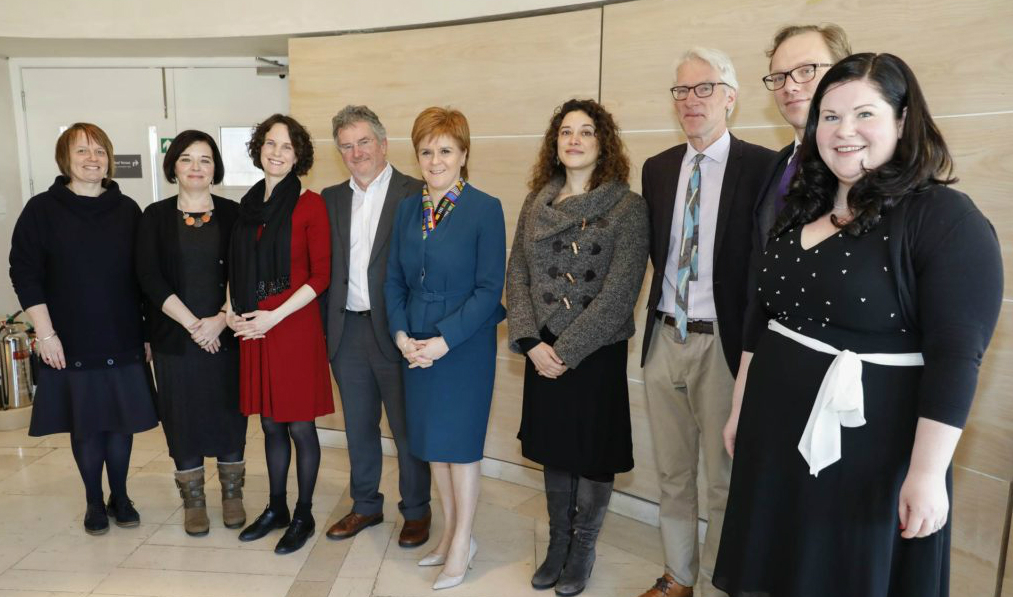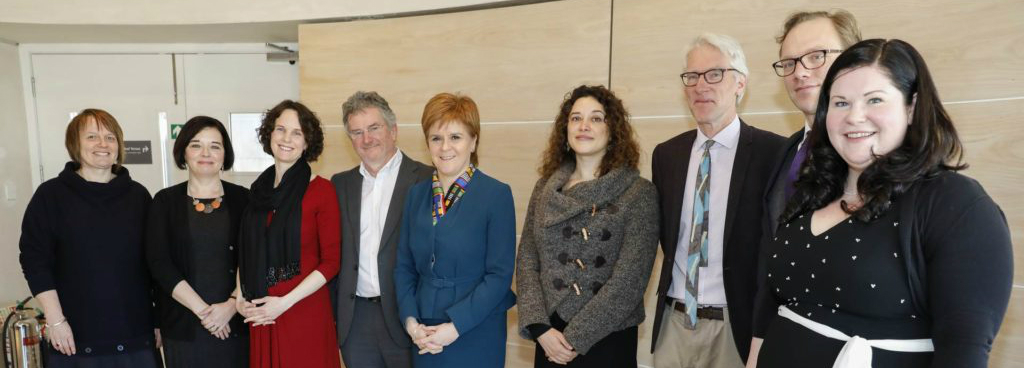The First Minister of Scotland’s advisory group on human rights leadership – which includes a University of Stirling academic – has recommended a new framework to improve people’s daily lives.
Stirling’s Dr Katie Boyle is a member of the group, whose recommendations were published today, on International Human Rights Day – as the world marks the 70th anniversary of the Universal Declaration on Human Rights.
Dr Boyle, Associate Professor in International Human Rights Law, said: “Scotland has a genuine opportunity to demonstrate leadership in progressing on human rights protections at a time when there has been regression on a global scale. People across the world need leadership in human rights to help address systemic human rights violations.

Dr Katie Boyle
“Poverty is a human rights issue. Housing, health care, education – these are all human rights that people are entitled to.
“Protecting these rights requires leadership and changes to laws, policies and decision making processes that embrace the dignity of every person. Scotland can become a rights respecting nation in its broadest meaning – the opportunity is there and I hope we grasp it with both hands.”
Operating independently from the Scottish Government, the 10-member advisory group was set up by First Minister Nicola Sturgeon, as part of the 2018 Programme for Government.
Ambition
Welcoming the group’s report, the First Minister said: “I set up the Advisory Group to offer advice on how we can further enhance human rights, as I wanted to ensure Brexit does not harm human rights in Scotland and that we remain in step with future advances in EU human rights. I also asked for recommendations to ensure Scotland is an international leader in respecting and enhancing human rights.
“I share the ambition in this report that Scotland should introduce a human rights statutory framework and I support their recommendation that this should be done through public engagement, working across the public sector, civic society and parliament. As a first step I will establish a National Taskforce, early in 2019, to progress these plans.
“It is fitting that the report is published as we celebrate Human Rights Day and the 70th anniversary of the signing the UN Declaration of Human Rights. I would like to thank Professor Alan Miller and all members of the group for their work and hope they continue to support efforts to deliver the human rights that will improve lives.”

First Minister’s Advisory Group on Human Rights Leadership
The advisory group was tasked with making recommendations on how Scotland can continue to lead by example in the field of human rights, including economic, social, cultural and environmental rights.
Chair of the Advisory Group, Professor Alan Miller – a Special Envoy of the Global Alliance of National Human Rights Institutions – said: “There is an urgent need of human rights leadership in today’s world, so we were delighted that the First Minister asked us for recommendations on how Scotland can lead by example.
“The leadership steps that Scotland needs to take are clear. The internationally recognised human rights belong to everyone in Scotland and must be put into our law.
Recommendations
”As importantly, they must then be put into everyday practice. In this way, people are empowered to lead lives of human dignity, to have a sense of self-worth.”
The seven recommendations from the First Minister’s Advisory Group on Human Rights Leadership are:
- 1. An Act of the Scottish Parliament which provides human rights leadership. The Act will establish a new human rights framework to improve people’s lives. It will set out for the first time and in the one place the rights belonging to everyone in Scotland. The Act will include those rights already provided by the Human Rights Act and additional rights drawn from UN treaties including economic, social, cultural and environmental rights.
- 2. A public participatory process as a vital part of the preparation of the Act and its implementation.
- 3. Capacity-building to enable effective implementation of the Act to improve people’s lives.
- 4. A Scottish Government National Mechanism for Monitoring, Reporting and Implementation of Human Rights.
5. Development of human rights indicators for Scotland’s National Performance Framework. - 6. Process of implementation of recommendations – to be led by a National Task Force.
- 7. Integration of any further devolved powers into the framework as proposed in Recommendation 1 and, if independence, a written constitution including a bill of Rights for Scotland.
For more information, visit: www.humanrightsleadership.scot

